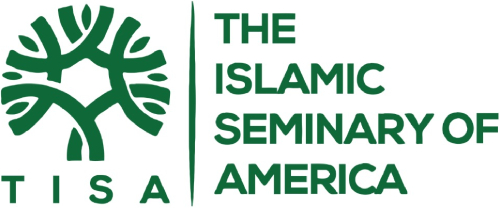SOURCE: Muslims of the World by Sajjad Shah

To me, journalism is about finding my place in an industry that isn’t so accepting of me. It’s about starting conversations that we are uncomfortable having. Many journalists say they went into this field because they liked to write. I went into journalism because I like to talk—just ask my parents. Growing up, I was a curious child—I never stopped talking, whether it was about my day or something I had learned. I would talk to anyone who would listen, and listen to anyone who would talk. As I got older, I consumed all types of media, and I became frustrated with the narrative surrounding Muslims and minorities. I decided I had to do something about it.
Being the only hijabi in a major newsroom is both a challenge and a blessing. I realized the importance of my role when I had a heartbreaking incident on my way to work. I was was crossing a street in Manhattan one morning when a man screamed at me, asking if I was planning to blow anything up. I was in a shock for a moment. I asked him, “What did you say?” but he only nonsensically screamed some more as he walked away. I rushed to the sidewalk to process what had just happened. I was born and raised in America and I love it here! He took one look at me and my hijab and decided I was a terrorist, when in fact I—probably like him—was simply on my way to work.
There are so few Muslims in the field of journalism. The problem is glaring, and it puts a lot of pressure on Muslim journalists to serve as go-to guides to Islam, which can be an incredibly complicated position to be in. Your religion becomes your identifier. You might be a journalist who focuses on environmental issues, but your coworkers see you as a constant resource who can help inform their stories about Islam. Being Muslim will always find its way back to you. This isn’t necessarily a bad thing, but once you realize how visible you are, it takes some adjustment.
Another challenge is the relationship Muslim journalists have with the Muslim community. Because hijabi women are considered representative of Islam, there is a burden of expectation that we must be perfect all the time. Although this idea comes from a place of valuing us, there is both a sense of relief and a sense of anxiety attached to this assumption. The Muslim community is relieved that there is a Muslim person in media, but it is anxious about the ubiquitous, unfair coverage of Muslims across all media platforms. I find myself constantly on the receiving end of my community’s relief and anxiety. There is pressure from them, as if I could fix the years of negative press overnight. The weight of this responsibility—of changing the narrative of Muslims, particularly Muslim women in hijab—feels like it’s quite literally in my hands. Going to work every day with that in the back of my mind can be exhausting.
But I’m grateful for my experience and I wouldn’t change a thing. Wearing hijab in this field has only motivated me to excel in all that I do. My work focuses on Islamophobia and the Muslim community here in the United States. Each of my identities—young, Arab, Muslim, woman—has only widened my lens as a journalist. I want to deliver the message that more minorities and Muslims are needed as journalists, especially at a time when the very Muslim identity has been politicized. A lot of my work involves making sure we are producing nuanced and complex stories about Muslims that reflect the richness of our community, not simply ones that constantly tie us to national security and foreign policy. It’s a lot for one person, but it’s a goal that is close to my heart.
Don’t ever think you cannot be successful because of your faith. This is the furthest thing from the truth and yet Western society repeats this lie to the Muslim community, and sometimes we even hear it from our own family and friends. There are Muslim women in Islamic history who were fearless leaders and whose faith only propelled them further into success. Success and hijab are not contradictory; they are complementary. Your hijab is your own.

